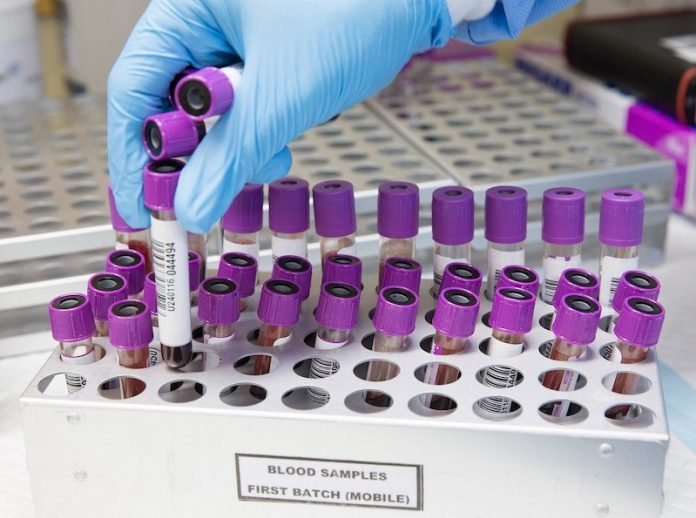
In a new study, researchers take a significant step closer to developing a uniform, universal COVID-19 antibody test.
They tested alternative ways to measure COVID-19 antibody levels that is faster and easier and can inexpensively be used on a larger scale to accurately identify potential donors with the best chance of helping patients infected with the COVID-19 virus with convalescent plasma therapy.
The findings will also have applications beyond determining who the best plasma donors are.
The researchers believe that following donor identification, it will most likely next be used in practice to establish target levels of COVID-19 antibodies necessary for vaccine candidates and passive immune therapies.
The research was conducted by a team at Houston Methodist and elsewhere.
It is very important to assess immunity in those previously infected by the COVID-19 virus and identifying asymptomatic individuals with high levels of neutralizing antibodies against COVID-19.
Previous research has found that donors who experienced shortness of breath (or dyspnea) while infected with COVID-19 and those who were hospitalized or had the severe disease were more likely to have a robust immune response and, thus, had higher levels of neutralizing antibodies in all the tests.
In the absence of available testing, identifying such donor characteristics may be used as a contingency plan to determine which patients have developed higher antibody levels and inform efforts to recruit plasma donors for therapeutic purposes.
In the study, the team sought to find alternatives to measuring virus neutralization (VN) titers, which is the gold standard of COVID-19 antibody testing, as VN antibodies in the blood correlate with immunity.
This kind of antibody testing, however, is not widely available, because it’s technically complex, requires days to set up, run and interpret, and needs to be performed in a biosafety level 3 laboratory.
This leads to most donor plasma virus antibody levels remaining unknown prior to transfusions, so an easier, more readily available method is needed to identify more suitable convalescent plasma donors.
The research team, therefore, looked to another type of test, called ELISA assays, which can be implemented and performed with relative ease in a high-throughput fashion and are widely available and extensively used in clinical labs across the world.
The ELISA tests, or enzyme-linked immunosorbent assays, look at whether antibodies against the SARS-CoV-2 proteins are present and produce a quantitative measure of those antibodies.
The UT Austin research team developed the ELISA antibody test for SARS-CoV-2 and provided the viral antigens for this study.
Specifically, scientists looked at the link of anti-spike ectodomain (ECD) and anti-receptor binding domain (RBD) IgG bloodstream antibody titers.
The spike ECD and RBD proteins are physiological parts of the much-talked-about spike protein made by SARS-CoV-2 and critical to how the virus finds its way into the body, spreads, and causes COVID-19 disease, so they are prime targets for antibody testing and vaccine development.
The blood samples for the study were identified during an institutional surveillance program involving 2,814 Houston Methodist employees.
The researchers found that the ELISA tests had an 80% probability or greater of comparable antibody level to VN titers at or above the FDA-recommended levels for COVID-19 convalescent plasma.
They also found that convalescent donors maintain high levels of immunity over the course of many weeks and that frequent plasma donations did not cause a significant decrease in antibody or virus neutralization levels.
Perhaps most surprising is that the team also identified 27 individuals from the surveillance cohort with high enough antibody titers across all three tests to indicate that some asymptomatic people may have plasma suitable for therapeutic use and may have a degree of relative immunity against SARS-CoV-2.
Houston Methodist became the first academic medical center in the U.S. to transfuse plasma from recovered people into COVID-19 patients.
One author of the study is James M. Musser, M.D., Ph.D.
The study is published in the Journal of Clinical Investigation.
Copyright © 2020 Knowridge Science Report. All rights reserved.



